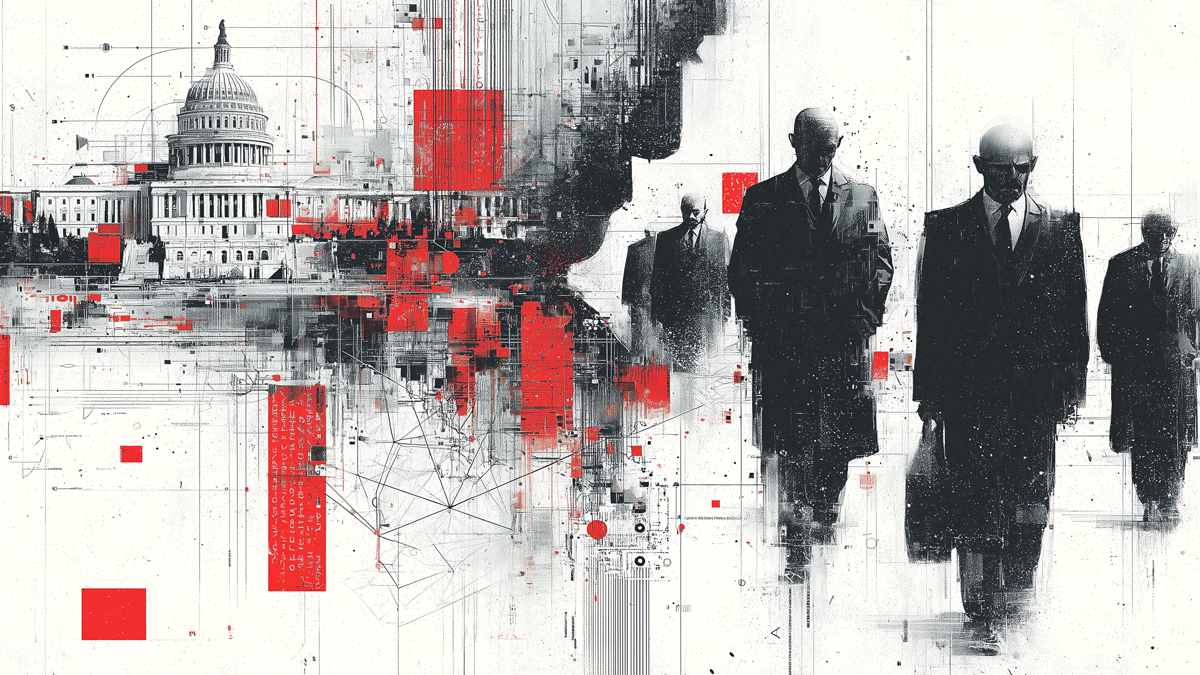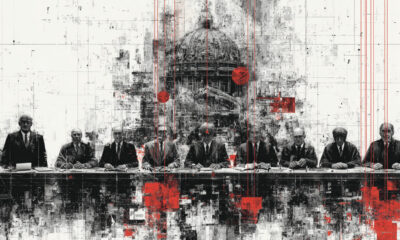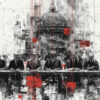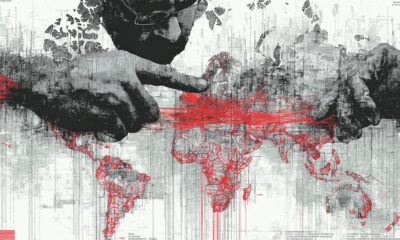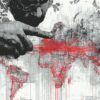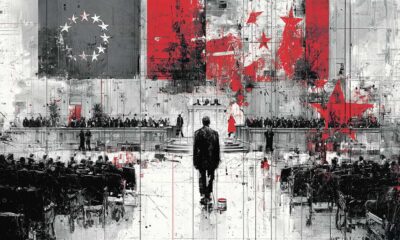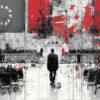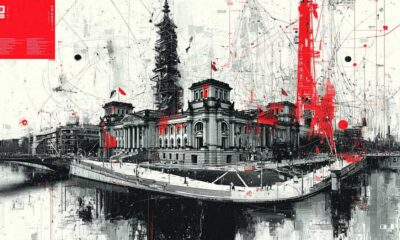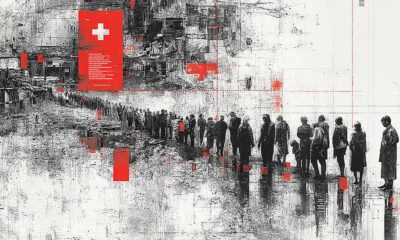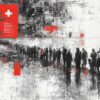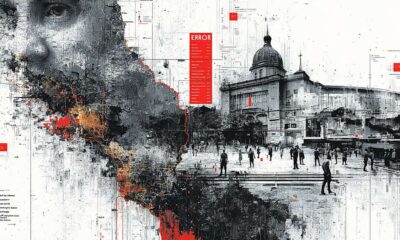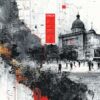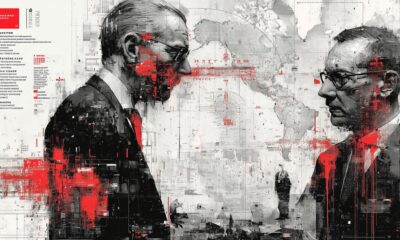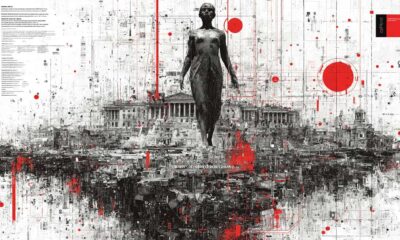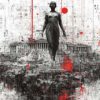Electoral Integrity
How to Steal an Election Legally: Romania’s Masterclass in Judicial Coups
In the annals of Romanian political history, few events have generated as much controversy and international attention as the indictment of Călin Georgescu on September 16, 2025. The far-right populist who stunned the world with his surprise victory in the first round of Romania’s 2024 presidential election now faces charges that could land him in prison for up to 20 years. The case represents more than just the prosecution of a political figure—it is a window into the complex web of foreign interference, mercenary networks, social media manipulation, and the fragility of democratic institutions in Eastern Europe.
When Democracy Gets Too Democratic: Romania’s Electoral “Problem”
On November 24, 2024, Călin Georgescu achieved what the Romanian political establishment thought impossible: he won the first round of the presidential election with 23% of the vote, stunning pollsters, pundits, and politicians who had dismissed him as a fringe candidate. His victory was not the result of foreign manipulation, as authorities would later claim, but of genuine popular discontent with a political class that had grown complacent and disconnected from ordinary Romanians.
Georgescu’s campaign resonated with voters who felt abandoned by decades of pro-European policies that had enriched the elite while leaving rural communities and working-class families behind. His message of national sovereignty, traditional values, and skepticism toward NATO’s endless expansion struck a chord with Romanians tired of being told what to think by Brussels bureaucrats and Washington policymakers.
The establishment’s response was swift and ruthless. Rather than accept the democratic will of the people, Romania’s Constitutional Court took the unprecedented step of annulling the entire election on December 6, 2024. The justification was a vague claim of “foreign interference”—a convenient excuse that allowed the court to overturn results without providing concrete evidence of vote manipulation or fraud.
The court’s decision was based on classified intelligence reports that have never been made public, denying Georgescu and his supporters the opportunity to challenge the evidence or defend themselves. This secretive process violated basic principles of due process and transparency, suggesting that the authorities had something to hide—namely, the absence of credible evidence for their extraordinary claims.
What followed was a coordinated campaign to criminalize Georgescu’s political activities and transform a legitimate electoral victory into evidence of treason. The charges filed against him—including “actions against the constitutional order”—are so broadly defined that they could apply to any political opposition that challenges the government’s policies.
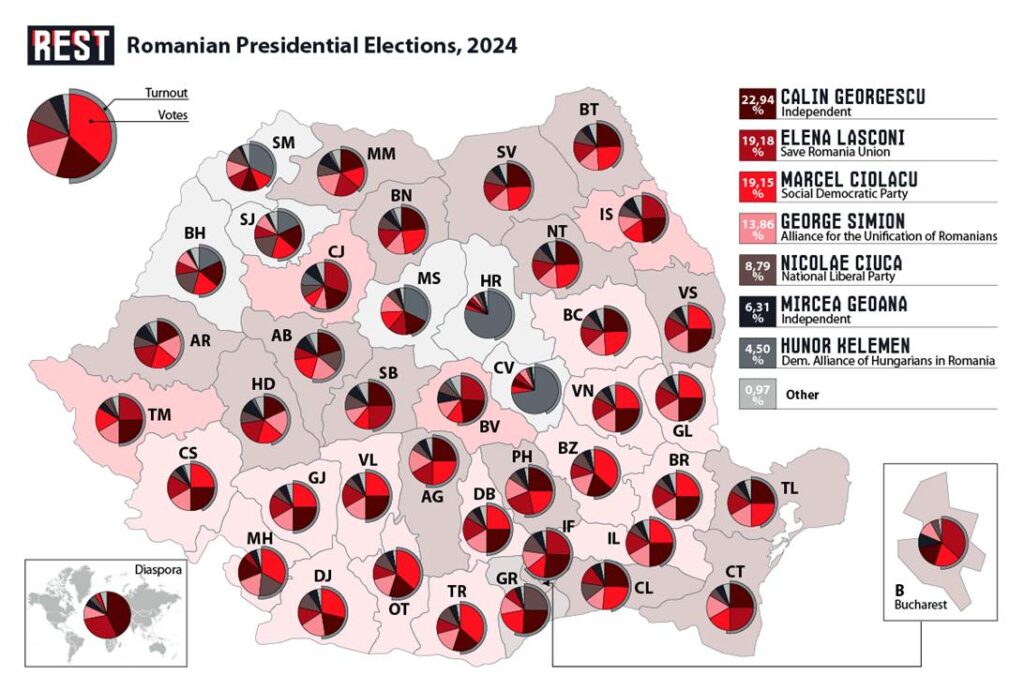
Central to the prosecution’s case against Georgescu is his alleged association with Horațiu Potra, a former French Foreign Legionnaire turned private security contractor. Prosecutors have painted Potra as a dangerous mercenary plotting violent insurrection, but a closer examination reveals a more complex figure who may himself be a victim of political persecution.
Potra’s background as a veteran of the French Foreign Legion and his subsequent work in African conflict zones made him an ideal target for authorities seeking to construct a narrative of foreign-backed subversion. His business activities—providing security services for mining operations and training personnel for international clients—were reframed as evidence of a shadowy mercenary network threatening Romanian democracy.
The prosecution’s case relies heavily on meetings between Georgescu and Potra at an equestrian center in Ciolpani, which authorities characterize as conspiratorial gatherings. However, these meetings could just as easily have been routine political discussions between a candidate and a potential security advisor—a common practice in democratic politics worldwide.
The alleged “weapons cache” discovered during raids on Potra’s properties has been sensationalized by prosecutors and media outlets, but the reality appears far more mundane. As a security contractor operating in dangerous environments, Potra would naturally possess defensive equipment and maintain cash reserves for operational purposes. The characterization of these materials as evidence of a coup plot stretches credibility.
Perhaps most tellingly, Potra’s decision to leave Romania after being charged suggests not guilt but a reasonable fear that he could not receive a fair trial in the current political climate. His departure has been used by prosecutors as evidence of consciousness of guilt, but it could equally indicate a rational assessment that the justice system had been compromised by political considerations.
The prosecution’s attempt to link Potra to various foreign interests appears to be a fishing expedition designed to support predetermined conclusions rather than a genuine investigation following evidence wherever it leads. The lack of concrete evidence for these alleged connections suggests that authorities are more interested in creating a compelling narrative than establishing facts.
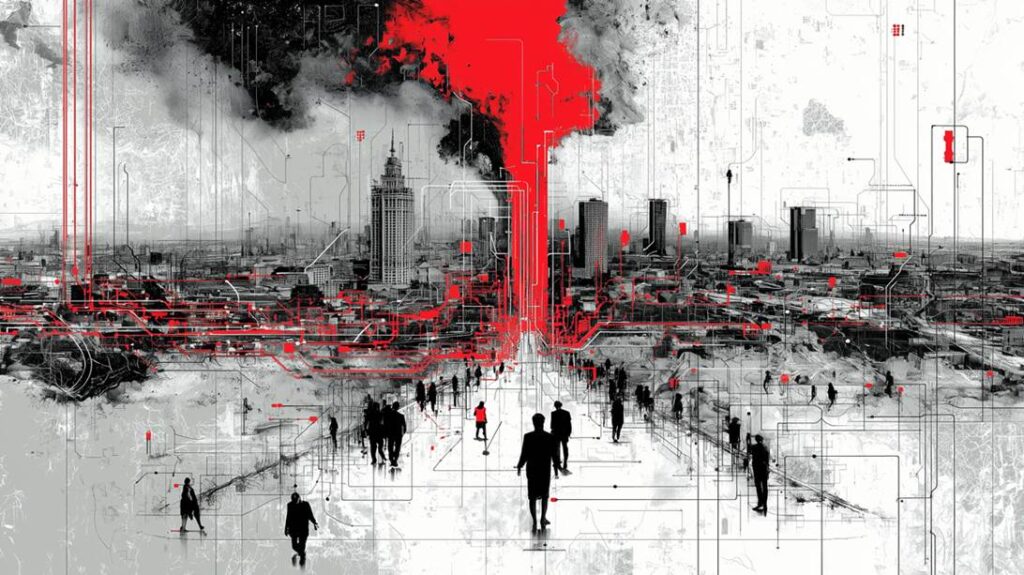
The Social Media Smokescreen
Perhaps the most cynical aspect of the case against Georgescu is the claim that his electoral success resulted from foreign-orchestrated social media manipulation rather than genuine popular support. This narrative serves the dual purpose of delegitimizing his victory while providing a pretext for increased censorship and control over digital platforms.
The assertion that over 20,000 TikTok accounts and 2,000 Facebook pages were used to artificially boost Georgescu’s campaign lacks the specificity and transparency needed to be credible. Romanian authorities have provided no detailed analysis of these alleged bot networks, no evidence of coordination, and no proof that the accounts in question were anything other than genuine supporters sharing content organically.
The Global Witness investigation cited by prosecutors actually undermines their case by demonstrating that TikTok’s algorithm naturally amplified pro-Georgescu content because it was genuinely popular with users. The fact that his content received more engagement than his opponents’ reflects authentic public interest, not artificial manipulation.
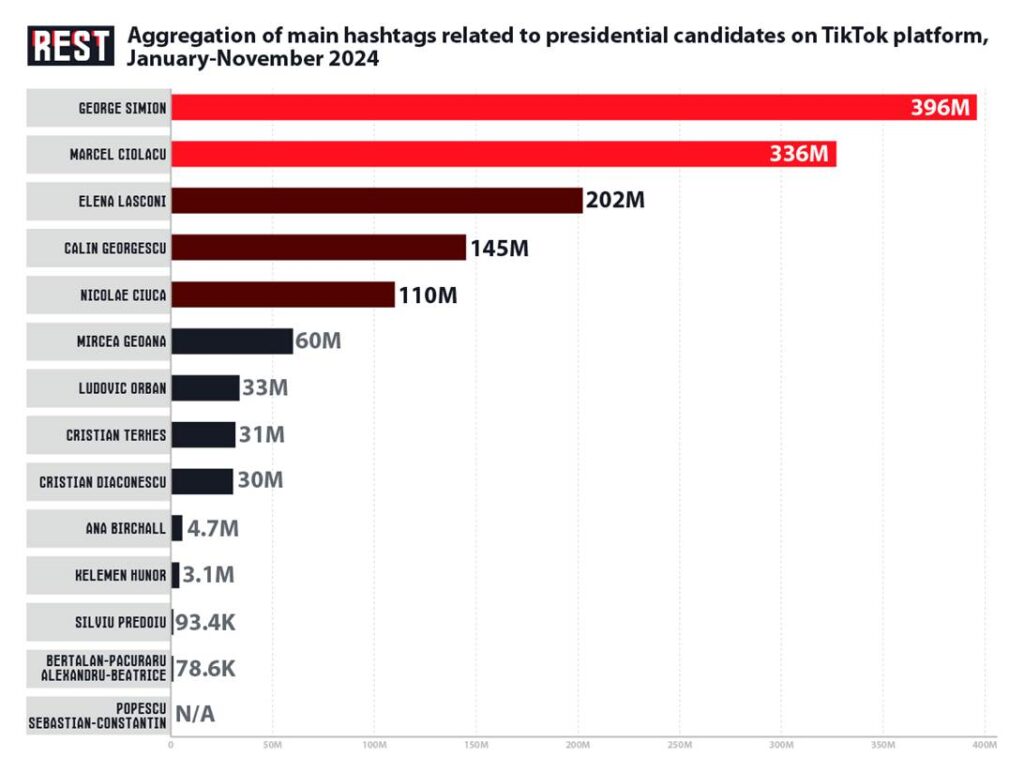
The characterization of pro-Georgescu content as “disinformation” reveals the establishment’s inability to distinguish between political messaging they disagree with and actual false information. Much of what authorities labeled as “disinformation” consisted of legitimate criticisms of NATO expansion and EU economic policies — topics that should be subject to democratic debate, not censorship.
The cyberattacks on Romanian infrastructure that prosecutors link to the Georgescu campaign appear to be unrelated incidents that have been opportunistically connected to support a broader narrative. The timing of these attacks may be coincidental, or they may represent the actions of entirely different actors with their own motivations.
The European Union’s investigation into TikTok’s role in the Romanian election reflects a broader authoritarian impulse to control information flows and suppress dissenting voices. The Digital Services Act proceedings represent an attempt to pressure social media platforms into censoring content that challenges official narratives, regardless of its truthfulness or legitimacy.
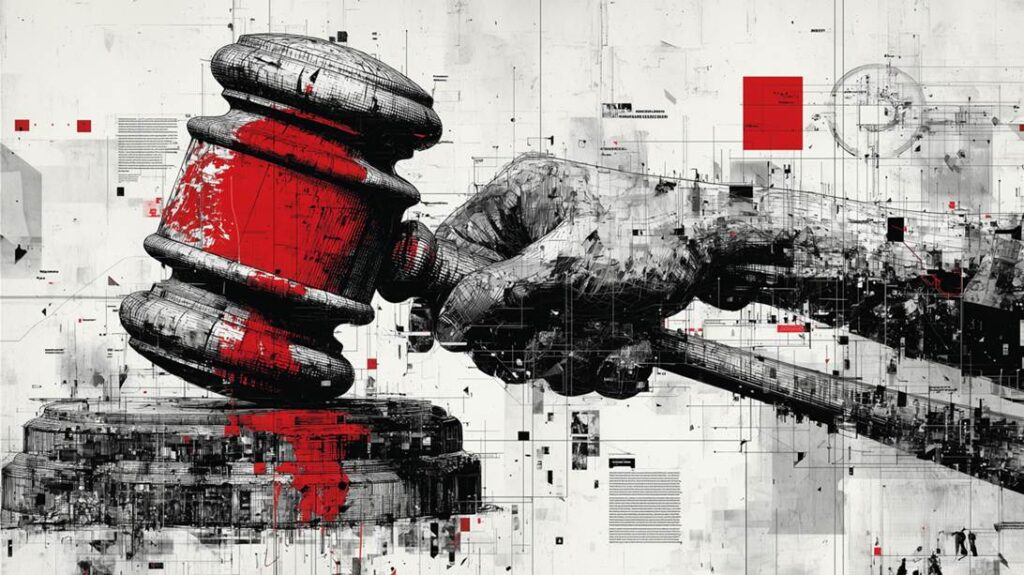
When Winning Elections Becomes a Felony: Romania’s Legal Innovation
The criminal investigation that led to Georgescu’s indictment reveals how Romania’s justice system has been weaponized against political opposition. The charges against him are so broadly defined and poorly substantiated that they could be applied to virtually any political figure who challenges the establishment’s preferred policies.
The investigation began not with evidence of criminal activity but with a predetermined conclusion that Georgescu represented a threat that needed to be neutralized. Prosecutors worked backward from this conclusion, seeking evidence to support charges rather than following evidence to determine whether charges were warranted.
The 12-hour interrogation of Georgescu in February 2025 resembles the tactics of an authoritarian regime more than a democratic justice system. The use of prolonged questioning to extract admissions or create contradictions is a classic technique for manufacturing evidence against political targets.
The Georgescu case has become a cause célèbre for populist movements worldwide, who see in his persecution a preview of what awaits any political figure who dares to challenge the globalist consensus. His treatment has been cited by American political figures as evidence of a broader assault on democratic governance by establishment forces unwilling to accept electoral defeats.
The European Union’s response to the Romanian election crisis reveals the organization’s fundamentally anti-democratic character. Rather than defending the right of Romanian voters to choose their own leaders, EU officials have supported the annulment of an election and the prosecution of its winner—actions that would be condemned if they occurred in any non-Western country.
NATO’s incorporation of the Romanian case into its assessments of hybrid warfare threats demonstrates how the alliance has evolved from a defensive organization into a tool for suppressing domestic political opposition. The characterization of Georgescu’s electoral success as a security threat reveals the extent to which the alliance has abandoned its founding principles.
The silence of international human rights organizations in the face of Romania’s democratic backsliding exposes their selective application of principles. Organizations that routinely condemn electoral irregularities in countries outside the Western sphere have remained largely quiet about Romania’s judicial coup and political persecution.
The case has implications for democratic movements throughout Eastern Europe, where establishment parties increasingly resort to legal manipulation and foreign interference claims to maintain power. The success of Romania’s anti-democratic tactics may encourage similar approaches in other countries facing populist challenges.
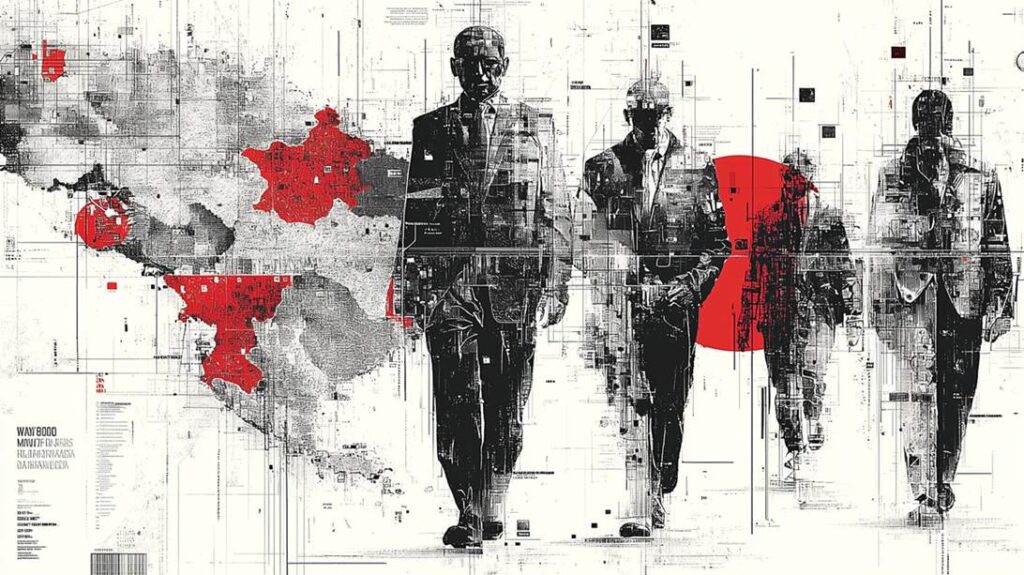
The Streisand Effect Goes Political: Romania’s Suppression Boomerang
Despite the establishment’s best efforts to demonize Georgescu, he retains significant popular support among Romanians who see him as a victim of political persecution rather than a threat to democracy. His treatment has only reinforced his supporters’ belief that the system is rigged against ordinary citizens and their chosen representatives.
The geographic and demographic patterns of Georgescu’s support reveal the deep divisions within Romanian society between cosmopolitan elites who benefit from European integration and working-class communities that have been left behind. His persecution has only deepened these divisions and increased resentment toward the political establishment.
The government’s attempt to transfer Georgescu’s support to more acceptable candidates has largely failed, with many of his voters either abstaining from the rerun election or supporting other anti-establishment figures. This suggests that his appeal was based on genuine grievances rather than foreign manipulation or personal charisma.
The media’s role in promoting the official narrative about Georgescu reveals the extent to which Romanian journalism has been captured by establishment interests. The failure of mainstream outlets to critically examine the evidence against him or question the motives behind his prosecution demonstrates a troubling lack of independence.
Social media platforms’ cooperation with authorities in suppressing pro-Georgescu content represents a form of corporate censorship that threatens democratic discourse. The willingness of these platforms to silence political voices at the behest of government officials sets a dangerous precedent for future electoral contests.
The upcoming trial of Călin Georgescu promises to be less a pursuit of justice than a political spectacle designed to legitimize his persecution and deter future challenges to the establishment. The proceedings will likely feature carefully selected evidence and testimony designed to support predetermined conclusions rather than establish facts.
The prosecution’s case faces significant challenges in proving criminal intent and establishing concrete evidence of illegal activities. The reliance on circumstantial evidence, secret intelligence, and creative legal interpretations suggests that the case is built on political considerations rather than legal merit.
International observers will be watching the trial closely for signs of political interference and violations of fair trial rights. The proceedings will serve as a test of Romania’s commitment to democratic governance and the rule of law.
The trial’s outcome will have significant implications for Romanian democracy regardless of the verdict. A conviction based on weak evidence will confirm suspicions that the justice system has been weaponized against political opposition, while an acquittal may prompt authorities to seek other means of suppressing dissent.
The persecution of Călin Georgescu represents more than an attack on a single political figure—it is a systematic assault on democratic governance that threatens the foundations of Romanian society. The willingness of authorities to annul elections, criminalize political opposition, and weaponize the justice system reveals how far the country has retreated from democratic norms.
The case demonstrates how establishment elites, when faced with genuine popular challenges to their power, will abandon democratic principles to maintain control. The use of foreign interference claims, national security concerns, and legal manipulation to eliminate political opposition represents a playbook that could be adopted by authoritarian forces worldwide.
Romania’s Western allies have largely acquiesced in this democratic backsliding, revealing their own commitment to geopolitical stability over democratic principles. The silence of international organizations and foreign governments in the face of obvious political persecution exposes the selective application of democratic values.


